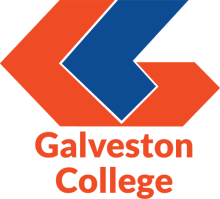Galveston College


Selected Programs at Galveston College
Explore programs at Galveston College. This list is curated by SkillPointe to match skills-based industries and careers that don't require a four-year degree.
Browse Training Programs (32)
Electrician
Electronics and Electronics Technology Advanced Level Certificate
Galveston College’s Electrical/Electronics Technology Program is designed to provide training for persons interested in the installation and...
View Program
Electronics and Electronics Technology Entry Level Certificate
Galveston College’s Electrical/Electronics Technology Program is designed to provide training for persons interested in the installation and...
View Program
HVAC Technician
Heating, Ventilation, Air Conditioning and Refrigeration Advanced Level 1 Certificate
The HVAC-R Technology Program at Galveston College is designed to provide hands-on training on the same
equipment used by business and industry. In...
View Program
Heating, Ventilation, Air Conditioning and Refrigeration Advanced Level 2 Certificate
The HVAC-R Technology Program at Galveston College is designed to provide hands-on training on the same
equipment used by business and industry. In...
View Program
Heating, Ventilation, Air Conditioning and Refrigeration Entry Level Certificate
The HVAC-R Technology Program at Galveston College is designed to provide hands-on training on the same
equipment used by business and industry. In...
View Program
Heating, Ventilation, Air Conditioning and Refrigeration, A.A.S.
The HVAC-R Technology Program at Galveston College is designed to provide hands-on training on the same
equipment used by business and industry. In...
View Program
Welder
Basic Fitting Certificatei Level One Advanced Certificate
The Welding Technology Program at Galveston College is designed to provide hands-on training on the same equipment used by business and industry....
View Program
Basic Qualified Welder Certificate Level Two Advanced Certificate
The Welding Technology Program at Galveston College is designed to provide hands-on training on the same equipment used by business and industry....
View Program
Level 1 Welding Block Certificate
The Welding Technology Program at Galveston College is designed to provide hands-on training on the same equipment used by business and industry...
View Program
Multiple Processes Certificate Level One Entry Certificate
The Welding Technology Program at Galveston College is designed to provide hands-on training on the same equipment used by business and industry....
View Program
Welding Technology, A.A.S.
The Welding Technology Program at Galveston College is designed to provide hands-on training on the same equipment used by business and industry....
View Program
MRI Technician
Magnetic Resonance Imaging (MRI) Certificate
Magnetic Resonance Imaging is a post-associate degree Certificate Program offered by Galveston College.
This course is designed for the cross...
View Program
Medical Records and Health Information Technician
Medical Administration, A.A.S.
Following the first 30 hours of study, students are awarded the Medical Coding Certificate, which provides the training to become an effective Medical...
View Program
Medical Coding and Billing Specialist Certificate
The Medical Billing and Coding Certificate is designed to prepare students with the knowledge and skills required of a Medical Billing and Coding...
View Program
Medical Coding Certificate
Following the first 30 hours of study, students are awarded the Medical Coding Certificate, which provides the training to become an effective Medical...
View Program
Medical Records Technician Certificate
Second year courses lead to the Medical Records Technician, which prepares students to work in a variety of healthcare settings, including hospitals...
View Program
Medical Sonographer
Sonography, A.A.S.
The five-semester Diagnostic Medical Sonography program begins each fall semester and leads to an Associate of Applied Science degree.
View Program
Nurse - LPN / LVN
Vocational Nursing, A.A.S.
The outstanding faculty and staff provide an excellent environment for learning the Arts & Science components of nursing. The faculty and staff are...
View Program
Radiology Technician
Computer Tomography Certificate
Computed Tomography (CT) is a branch of radiology that employs specialized radiography equipment to produce sectional images of the human anatomy. The...
View Program
Radiography, A.A.S.
The Radiographer is a health professional educated to utilize ionizing radiation to produce images used in the diagnosis of disease. Radiography by...
View Program
Surgical Technologist
Surgical Technology, A.A.S.
The Surgical Technology program includes both theory and practical clinical experience designed to prepare the student to pass the national...
View Program
Chef and Head Cook
Culinary Arts, A.A.S.
The associate of applied science degree is designed to provide a well-rounded culinary education to secure an entry-level position in the food service...
View Program
Culinary Basic Certificate
The Culinary Arts Basic Certificate is designed for the individual seeking training to become employed as an entry-level cook. The student will...
View Program
Electrical and Electronics Engineering Technician
Electrical and Electronics Technology, A.A.S.
Galveston College’s Electrical/Electronics Technology Program is designed to provide training for persons interested in the installation and...
View Program
Electrical/Electronics Technology, A.A.S.
Galveston College’s Electrical/Electronics Technology Program is designed to provide training for persons interested in the installation and...
View Program
Electronics and Electronics Technology Advanced Level Certificate
Galveston College’s Electrical/Electronics Technology Program is designed to provide training for persons interested in the installation and...
View Program
Electronics and Electronics Technology Entry Level Certificate
Galveston College’s Electrical/Electronics Technology Program is designed to provide training for persons interested in the installation and...
View Program
EMTs and Paramedics
Advanced Emergency Medical Technician Certificate
Certification – Advanced Emergency Medical Technician
This program is designed to prepare students for a career in emergency medical services...
View Program
Emergency Medical Services, A.A.S.
This program is designed to prepare students for a career in emergency medical services. Students successfully completing the first semester may apply...
View Program
Paramedic Certificate
This program is designed to prepare students for a career in emergency medical services. Students completing the Paramedic Certificate Program may...
View Program
Police Officer
Law Enforcement (Police Academy) Certificate
The Galveston College law Enforcement Academy is designed for those, working full-time jobs, who are seeking their Texas Commission on Law Enforcement...
View Program
Address
4015 Ave Q
Galveston, TX 77550-7496
Galveston, TX 77550-7496
Phone number
409-944-1220